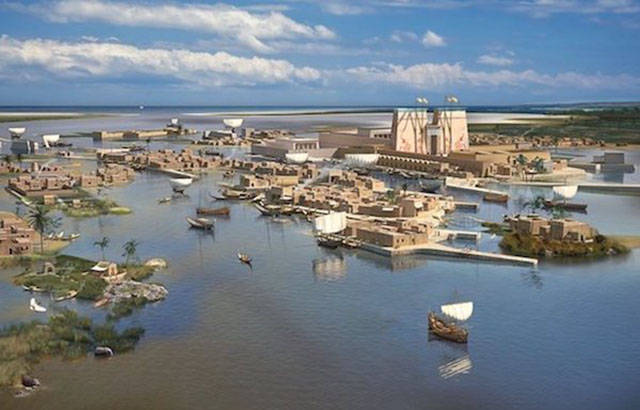Historical documents are riddled with descriptions of places and things that archeologists and historians are still trying to decipher. Of course, it would all be easier if history had recorded more times of peace than war, and invaders didn’t go around burning libraries and sacking cities, we might still have complete records of what the world looked like in ancient times. Can you imagine what we’d know if the Library of Alexandria was still complete? We’d know more stuff about the ancient world than we do now, that’s for sure. Instead, we have to rely on what we have; vague descriptions of locations, long forgotten myths, technologies and biographies of significant people.
For example, take the myth of Atlantis. Plato’s writings talked about an advanced civilization that fell out of favour with the Gods, then sunk into the sea. The Egyptians also had a similar story of an island called Thonis (which the Greeks called Heracleion), that sunk into the sea one day. Both recollections make it sound like this was a tangible place, but no one knows where they were and if they existed.
But what if both stories are correct? What if there was an island that was reclaimed by the water, that was full of knowledge and riches. And what if it might have been found?
